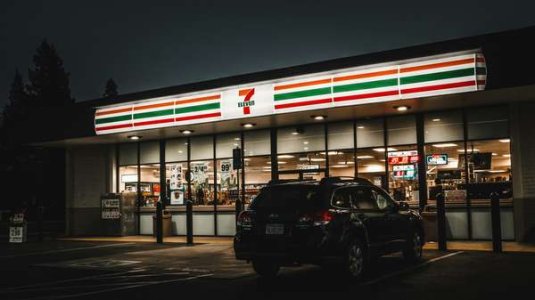Convenience store giant is set to undergo major transformation under new ownership
By
KenAlunan
- Replies 6
7-Eleven holds an iconic status as a go-to destination for late-night snacks and convenience items, and a quintessential part of the urban landscape.
Despite this, the convenience store is set to undergo a significant transformation under its new ownership.
In November 2023, 7-Eleven Australia welcomed a new chapter in its history with a $1.71 billion buyout by Japanese retail giant 7-Eleven International.
This change is not just a shift in financial control.
It also brings with it a cultural and operational makeover that could redefine the convenience store experience, especially for those who have come to rely on these stores for quick access to everyday items.
He said, ‘Japanese stores…are the high mark around the global network. The way they present themselves, the store standards, the way they operate is just seamless and we’ve got a lot to learn from them.’
‘We’ve been pushing for many years now to move away from being a pure chips and chocolate retailer.’
With 750 stores around the country, 7-Eleven is already a dominant player in the convenience store market.
However, the landscape is changing, with increased competition from Coles Express and the expanding On The Run (OTR) empire.
To stay ahead, 7-Eleven is implementing a new strategy.
The company said it would ‘expand (its) product assortment and introduce new high-quality fresh foods’.
Mr Mckay said, ‘It is about continuing to grow our store network in Australia and providing unrivalled customer experiences and quality products.’
‘My team and I are looking forward to taking advantage of 7-Eleven International’s deep experience in convenience retailing with the leadership of Executive Chairman, Shin Abe.’
Mr McKay's address also hinted at the potential rollout of a delivery service.
However, it's not all smooth sailing. The retail sector, including convenience stores, is navigating through challenging economic times.
Mr McKay acknowledged the impact of price inflation, higher interest rates and utility bills on consumer spending.
He said, ‘It’s low relative real wage growth over a sustained period of time, higher interest rates, and it is absolutely (the cost of) utilities, which we don’t talk enough about, which really hurts the consumer.’
This isn’t the only change to the convenience store landscape that we can expect to see soon.
In a previous story, it was revealed that 7-Eleven’s competitors are set to undergo major changes as well. You can read about the story here.
 Are you excited about the prospect of a major change happening at a 7-Eleven in your neighbourhood? What changes or additions would you like to see in these stores? Share your thoughts and opinions in the comments below!
Are you excited about the prospect of a major change happening at a 7-Eleven in your neighbourhood? What changes or additions would you like to see in these stores? Share your thoughts and opinions in the comments below!
Despite this, the convenience store is set to undergo a significant transformation under its new ownership.
In November 2023, 7-Eleven Australia welcomed a new chapter in its history with a $1.71 billion buyout by Japanese retail giant 7-Eleven International.
This change is not just a shift in financial control.
It also brings with it a cultural and operational makeover that could redefine the convenience store experience, especially for those who have come to rely on these stores for quick access to everyday items.
Angus McKay, the Chief Executive of 7-Eleven, shared insights into the upcoming changes, hinting at a significant Japan-inspired overhaul.
He said, ‘Japanese stores…are the high mark around the global network. The way they present themselves, the store standards, the way they operate is just seamless and we’ve got a lot to learn from them.’
‘We’ve been pushing for many years now to move away from being a pure chips and chocolate retailer.’
With 750 stores around the country, 7-Eleven is already a dominant player in the convenience store market.
However, the landscape is changing, with increased competition from Coles Express and the expanding On The Run (OTR) empire.
To stay ahead, 7-Eleven is implementing a new strategy.
The company said it would ‘expand (its) product assortment and introduce new high-quality fresh foods’.
Mr Mckay said, ‘It is about continuing to grow our store network in Australia and providing unrivalled customer experiences and quality products.’
‘My team and I are looking forward to taking advantage of 7-Eleven International’s deep experience in convenience retailing with the leadership of Executive Chairman, Shin Abe.’
Mr McKay's address also hinted at the potential rollout of a delivery service.
However, it's not all smooth sailing. The retail sector, including convenience stores, is navigating through challenging economic times.
Mr McKay acknowledged the impact of price inflation, higher interest rates and utility bills on consumer spending.
He said, ‘It’s low relative real wage growth over a sustained period of time, higher interest rates, and it is absolutely (the cost of) utilities, which we don’t talk enough about, which really hurts the consumer.’
This isn’t the only change to the convenience store landscape that we can expect to see soon.
In a previous story, it was revealed that 7-Eleven’s competitors are set to undergo major changes as well. You can read about the story here.
Key Takeaways
- 7-Eleven Australia is set to undergo major changes under new Japanese ownership following a $1.71 billion buyout.
- Chief Executive Angus McKay announced a Japan-inspired makeover, seeking to emulate the high standards of Japanese 7-Eleven stores.
- The convenience store chain plans to expand its product assortment, introducing fresh food and possibly a delivery service to enhance customer experience.
- Economic challenges such as price inflation, higher interest rates, and utility bills are impacting consumer spending, according to Mr McKay.








